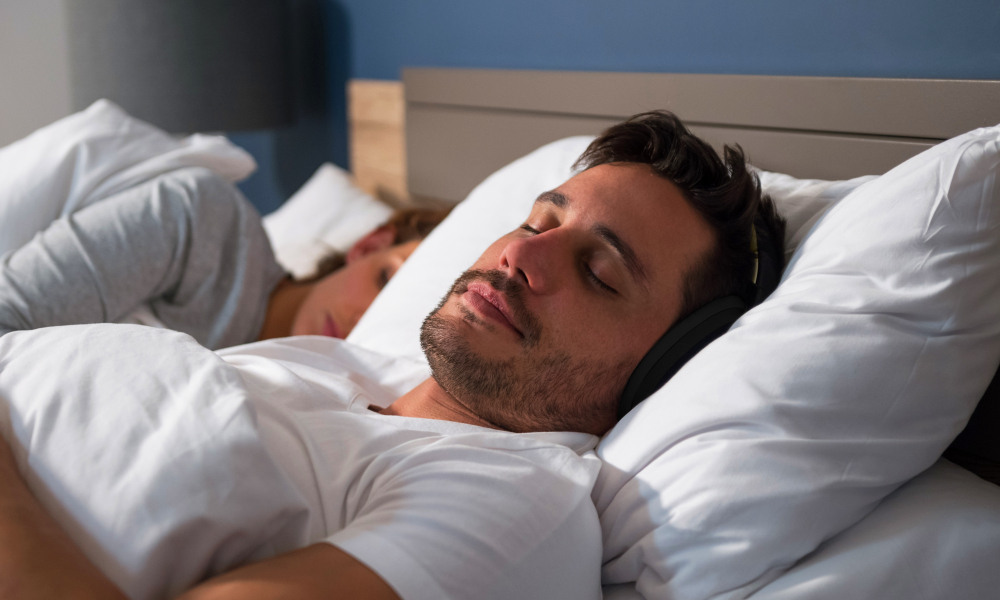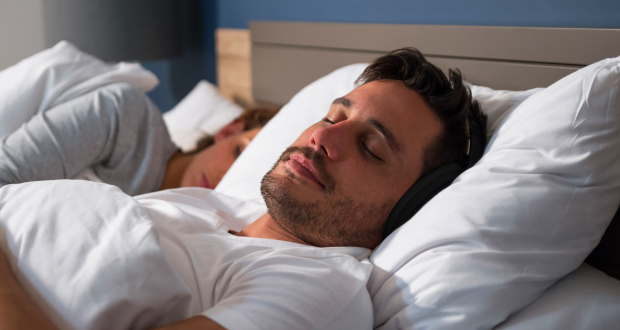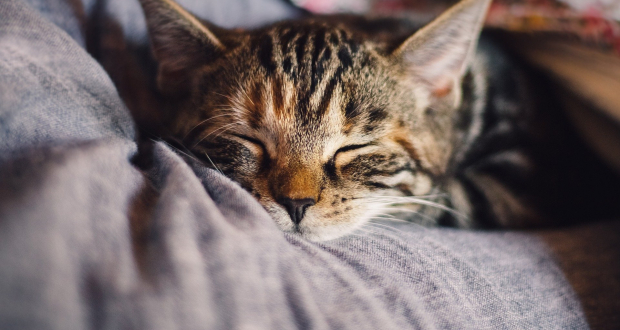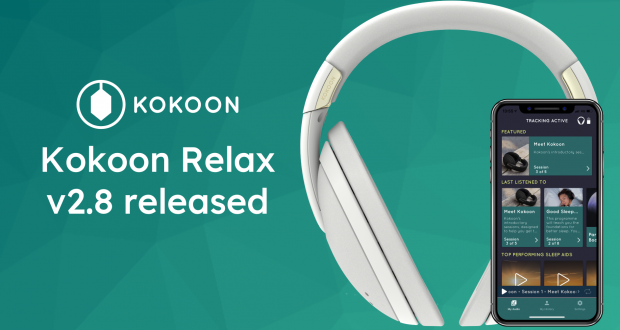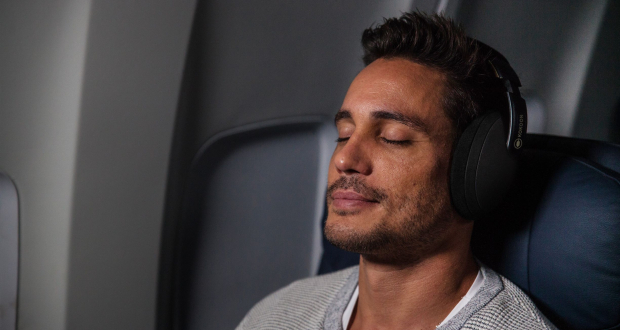Sleep deprivation is a growing problem affecting millions of people worldwide. The National Sleep Foundation reports 45% of Americans to have poor sleep at least once a week (1). This is a significant health concern considering poor sleep on a regular basis can lead to medical conditions such as high blood pressure, diabetes, and even depression (2,3). Many people consider the use of prescription medications as a first line solution for their problems. However, these drugs are well known to have serious side effects if used long term (4,5).
At Kokoon we believe one of the best ways to help you sleep and relax better is through audio. If you have ever visited a sleep clinic, the first thing they teach you is “relaxation training” guided by audio recordings. In this article, we explore what we mean by audio, how it works, and how the audio in the Kokoon Relax mobile app can help you relax and sleep easier.
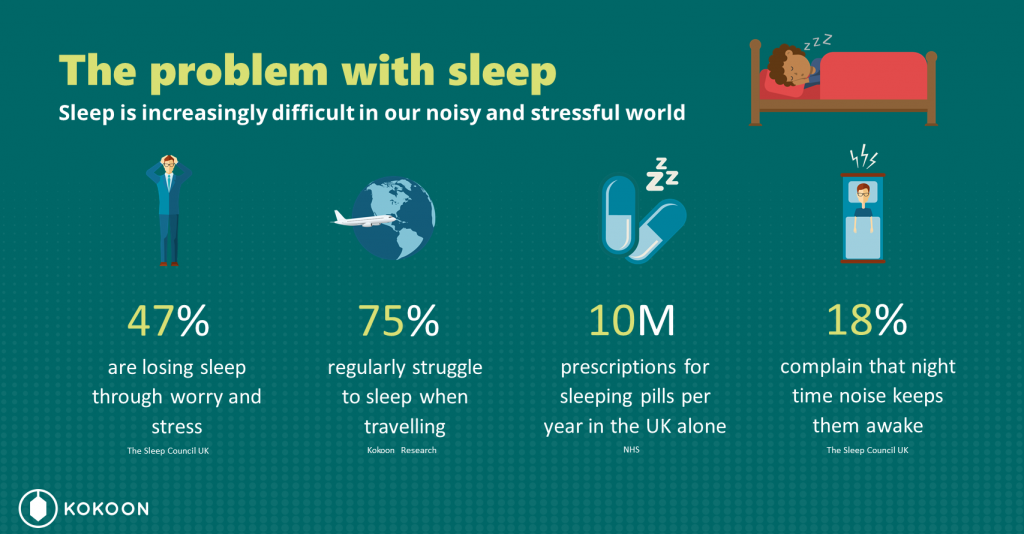
What do we mean by “audio” and why does it work?
Audio is defined as “an acoustic, mechanical or electrical sound audible by the human ear”. Scientists have been investigating the impact of audio on relaxation and sleep for a long time and have found some interesting results: listening to audio can help improve not only your sleep quality but also the length of time it takes to fall asleep and the total amount of sleep you get daily (6).
There are various types of audio that have been proven to help you relax and sleep (7). Cognitive Behavioural Therapy is one of the most effective forms, which has been used in sleep clinics for decades. There is also music, with classical music being the most common, as well as sounds of nature. We will explore these in more detail below, but it is important to note, what works for you can be quite personal.
Part of the answer as to why audio works is in how our brains interpret the sounds we hear (8). Researchers at Brighton and Sussex Medical School in the UK found that playing naturalistic sounds had a restorative effect, activating our parasympathetic nervous system commonly involved in relaxing our heartbeat and slowing down our breathing (9). Another study shows audio also influences the modulation of cortisol, a stress hormone, making people more effective in dealing with stress and creating a positive mood (10). Similarly, there are many other studies demonstrating the positive effects of audio in sleep and relaxation (11,12).
How can Kokoon help with your sleep and relaxation?
We’ve developed the world’s first sleep aiding headphones and paired them with the Kokoon Relax mobile app which includes a wide variety of audio content specifically designed to help you sleep. Our app features three main types of audio: Cognitive Behavioural Therapy (CBT), Music, and Soundscapes.
Cognitive Behavioural Therapy
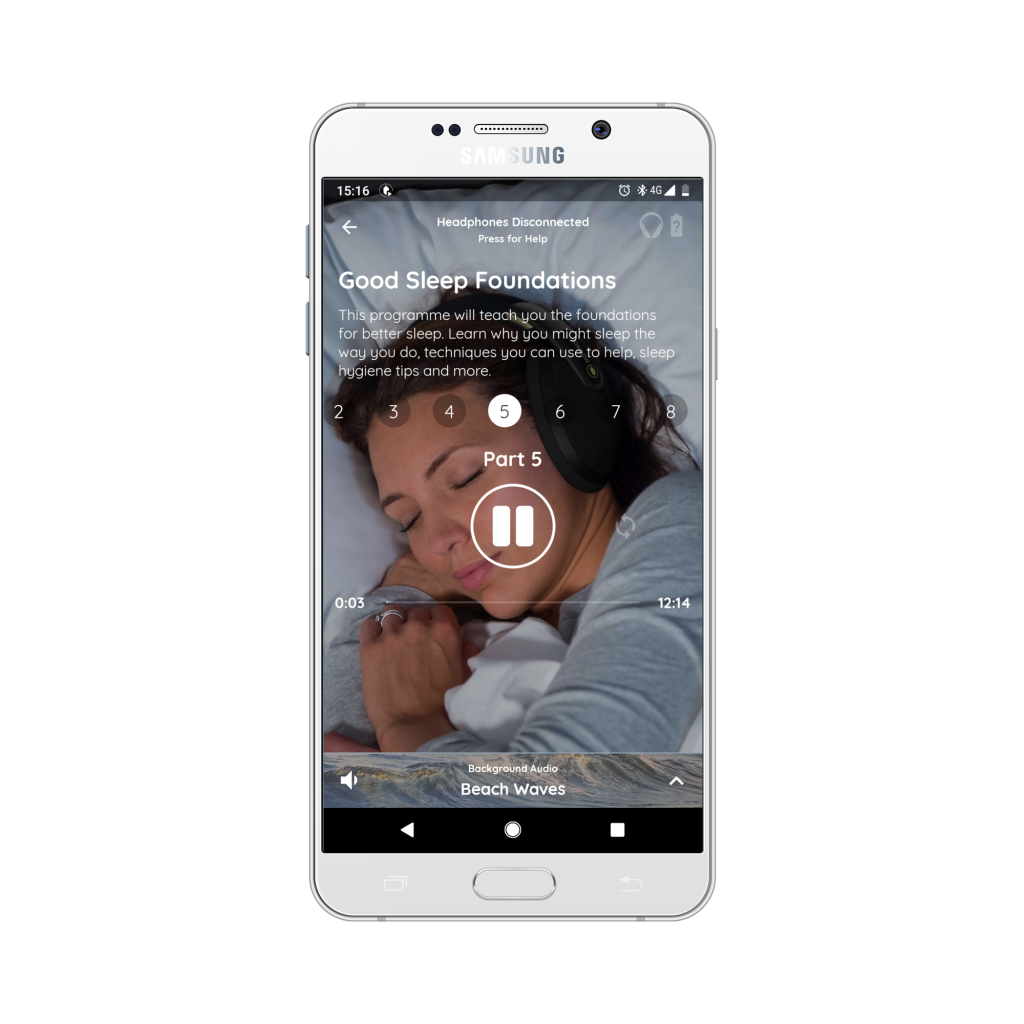
Our Good Sleep Foundations Programme is an 8-part audio program using CBT techniques. The sessions take you through a series of breathing and meditation exercises that set you up for sleep, switch off your mind and help you focus. CBT is currently one of the most effective treatments for sleep disorders (13,14) and has been proven to be successful in clinical trials for helping individuals fall asleep and relax better.
Music
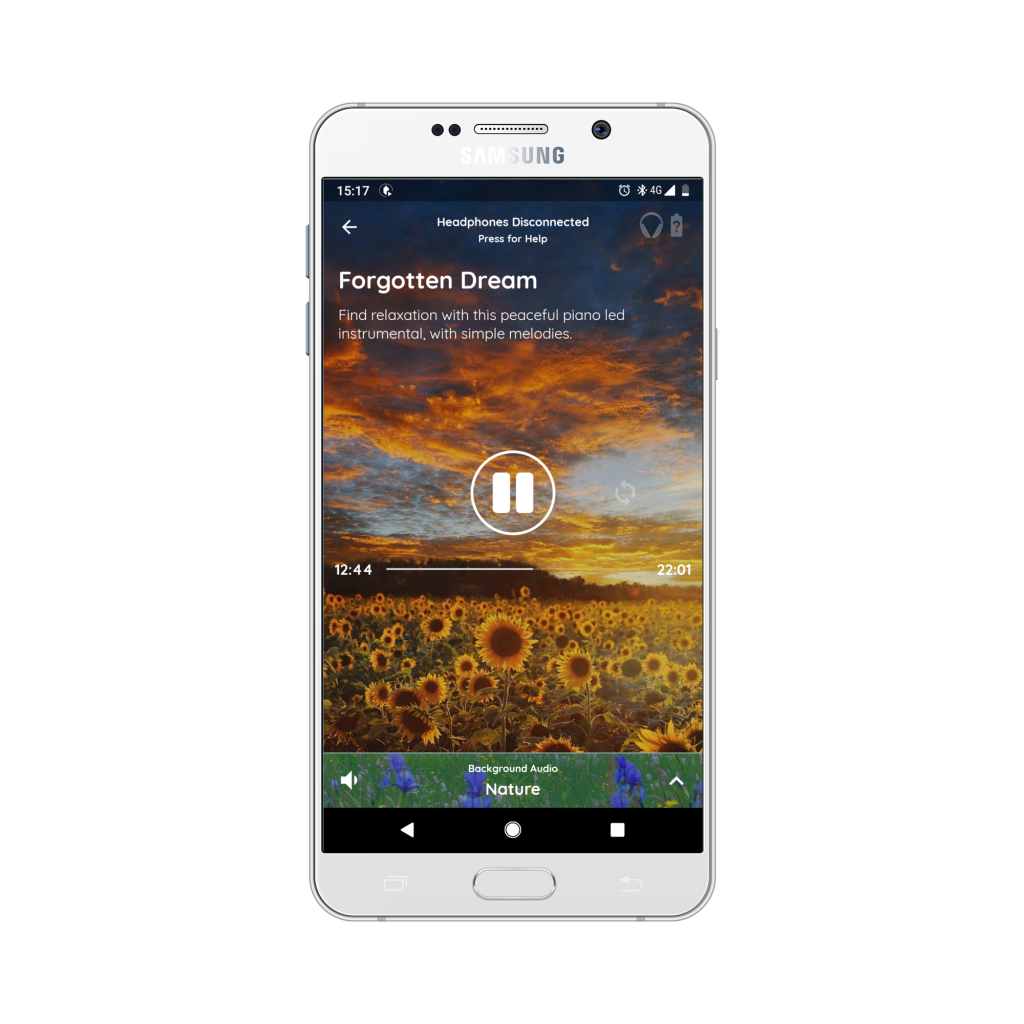
Music is often used to improve sleep quality and more and more scientific research is also recognizing music as an effective treatment in chronic insomnia (15,16). We have worked with composers such as Ross Sampson and Rhys Copeland and experienced sleep scientists to develop a variety of soothing melodies aimed at helping you switch off and relax.
Soundscapes
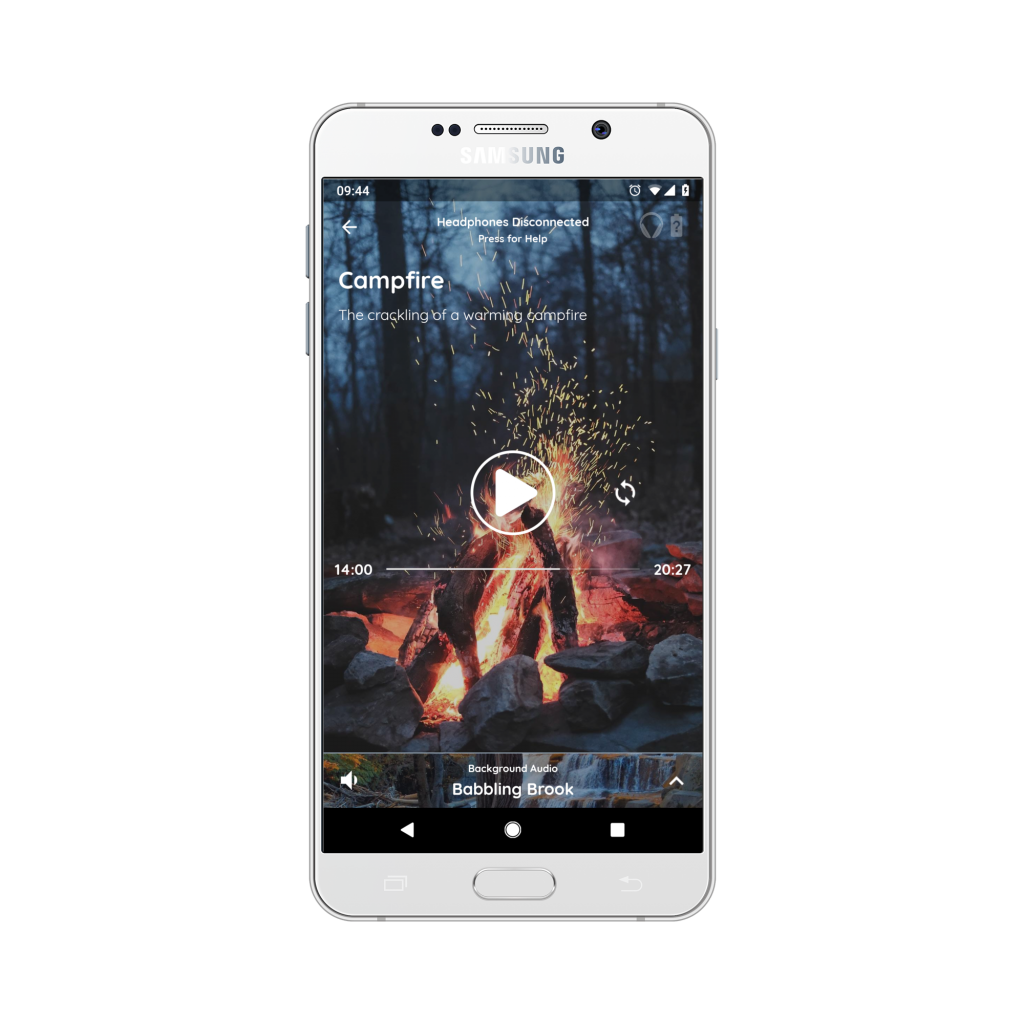
Soundscapes are sounds or a combination of sounds arising from an immersive environment. Commonly thought of as background sounds of nature, soundscapes could also be foreground sounds such as bells and sirens. Many of our users find soundscapes helpful as it transports them to a calmer and serene environment. We have a range of soundscapes available in our app from calming rainfall to cosy campfire.
What about white noise?
You may have heard of people not being able to sleep unless they have the fan or air conditioner on. Well, for some people constant noise is better than variable noise. This is because when a noise wakes you up at night it is not because of the noise itself, but rather the sudden change or inconsistency of the noise to the background. The Kokoon app also includes white noise (and other colours) which is a consistent sound that has the effect of masking these sudden changes in noise.
Mastering your sleep: Intelligent Audio
Kokoon headphones also have integrated movement and EEG sensors. These sensors enhance your audio experience further by analysing your brain activity and learning over time what type of audio works better for your relaxation and sleep. Each day that you use your headphones and app for your sleep and relaxation Kokoon will monitor how you responded and help you create a more personalised audio experience.
Conclusion
Audio has been scientifically proven to help you sleep and relax better. At Kokoon our ambition is to help you do this by providing you with a unique and intelligent audio experience. Begin your journey to better sleep by exploring the Kokoon Relax headphones and app today.
References
- National Sleep Foundation, 2019. Accessed at: https://www.sleepfoundation.org/press-release/lack-sleep-affecting-americans-finds-national-sleep-foundation
- National Health Service, 2019. Accessed at: https://www.nhs.uk/live-well/sleep-and-tiredness/why-lack-of-sleep-is-bad-for-your-health/
- Mental Health Foundation, 2019. Accessed at: https://www.mentalhealth.org.uk/blog/poor-sleep-affects-our-wellbeing-and-everyday-lives
- Medications for the Treatment of Sleep Disorders: An Overview, Prim Care Companion J Clin Psychiatry. 2001; 3(3): 118–125. Accessed at: https://www.ncbi.nlm.nih.gov/pmc/articles/PMC181172/
- The Mayo Clinic, Prescription sleeping pills: What’s right for you. Accessed at: https://www.mayoclinic.org/diseases-conditions/insomnia/in-depth/sleeping-pills/art-20043959
- Music for insomnia in adults (Review), Cochrane database of systematic reviews. 2015; 8: 1-59. Accessed at: https://www.cochranelibrary.com/cdsr/doi/10.1002/14651858.CD010459.pub2/epdf/full
- The music that helps people sleep and the reasons they believe it works: A mixed methods analysis of online survey reports, PLoS One. 2018. Accessed at: https://journals.plos.org/plosone/article?id=10.1371/journal.pone.0206531
- Live Science, 2019. Accessed at: https://www.livescience.com/53403-why-sound-of-water-helps-you-sleep.html
- Mind-wandering and alterations to default mode network connectivity when listening to naturalistic versus artificial sounds. Sci. Rep. 2017; 7: 45273. Accessed at: https://www.nature.com/articles/srep45273
- The impact of acute stress on hormones and cytokines, and how their recovery is affected by music-evoked positive mood, Sci Rep. 2016; 6: 23008. Accessed at: https://www.ncbi.nlm.nih.gov/pmc/articles/PMC4810374/
- The anxiety- and pain-reducing effects of music interventions: a systematic review. AORN J. 2008; 87 (4):780–807. Accessed at: https://www.ncbi.nlm.nih.gov/pubmed/18395022
- Music listening as a means of stress reduction in daily life. Psychoneuroendocrinology. 2015; 60:82–90. Accessed at: https://www.ncbi.nlm.nih.gov/pubmed/26142566
- Cognitive and behavioural therapies in the treatment of insomnia: A meta-analysis. Sleep Medicine Reviews. 2018; 38:3-16. Accessed at: https://www.sciencedirect.com/science/article/pii/S1087079217300345
- Effect of Digital Cognitive Behavioral Therapy for Insomnia on Health, Psychological Well-being, and Sleep-Related Quality of Life: A Randomized Clinical Trial. JAMA Psychiatry. 2019; 76(1):21-30. Accessed at: https://jamanetwork.com/journals/jamapsychiatry/article-abstract/2704019
- Music therapy improves sleep quality in acute and chronic sleep disorders: A meta-analysis of 10 randomized studies. International Journal of Nursing Studies. 2014; 51(1):51-62. Accessed at: https://www.sciencedirect.com/science/article/pii/S0020748913000965
- The effects of music on the sleep quality of adults with chronic insomnia using evidence from polysomnographic and self-reported analysis: A randomized control trial. International Journal of Nursing Studies. 2012; 49(8):921-930. Accessed at: https://www.sciencedirect.com/science/article/pii/S0020748912000855


